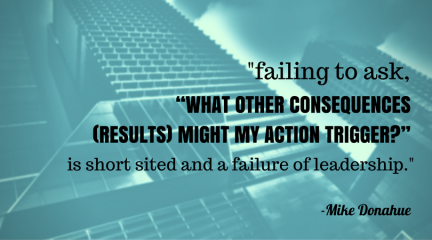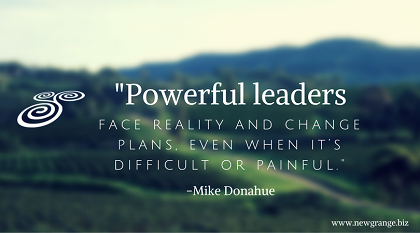
Five Leadership Lessons Learned in November
November was a memorable month due to events that occurred both on the national stage and inside my leadership peer groups.
These events reinforced five leadership lessons that I believe are worth revisiting. The first one of the five reminds us of the importance of emotions in creating a motivating, envisioned future; the remaining four describe defense mechanisms we use to distance ourselves from full awareness of disagreeable thoughts, feelings and behaviors. Being aware of them helps us deal with them more effectively.
- A compelling vision can make the underdog the big dog. I am amazed by the number of smart people who fail to offer a compelling reason to work for them, vote for them or buy their products. If you can’t elicit positive emotions in others when you tell your story, you’ll never win their hearts. Emotions trump facts and figures every time.
- Reality testing. In his book Good to Great, Jim Collins calls it “facing the brutal facts.” People who study emotional intelligence call it reality testing. Whatever you call it, powerful leaders don’t stick their heads in the sand and ignore what the facts are telling them; they understand that hubris blinds. They face reality and change plans, even when it’s difficult or painful.
- Driving to Abilene. Jerry Harvey first defined the Abilene Paradox way back in 1974. It describes a family’s failure to communicate how they truly feel about taking a 50-minute drive in an un-air-conditioned car on a hot summer day in West Texas. The moral of the story is that you must speak up; it’s nonsensical to go with the flow if you don’t agree. It’s a lesson we learned as children from Hans Christian Andersen’s fable The Emperor’s New Clothes, and yet as adults, we go along to get along. This reluctance to speak up facilitates group think and leads to bad decisions like New Coke.
- Easy vs. Pt. Crisis. If you have a difficult issue to confront, it’s best to do so early, before it grows into a big, gnarly issue. Address it without delay, at point easy rather than wait to address it at point crisis.
- Unintended consequences. If you’ve studied economics, you’ve learned about unintended consequences. It’s the arrogance of thinking that the only consequence of an action is the one you intended. Failing to ask, “What other consequences (results) might my action trigger?” is short sited and a failure of leadership.
That’s it; short and sweet. Happy holidays.

